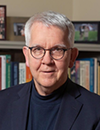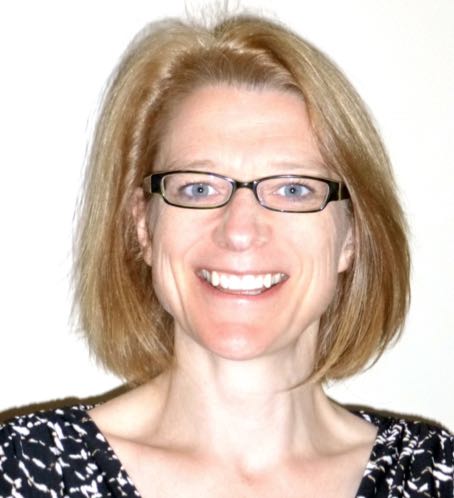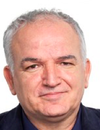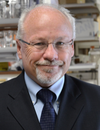| Conferences > Point-of-Care Diagnostics, Global Health & Biosensors 2019 > Keynote Speakers |
| Register | Login |
Amy AdelbergerFounder and CEO, Global Impact Advisors Amy founded and leads Global Impact Advisors, a boutique strategy and evaluation advisory firm, where she is responsible for all aspects of the business including strategic direction, client engagement, and project delivery. She advises foundations, non-profits, and universities on achieving their program outcomes and enhancing their impact. |
Chong AhnDistinguished University Research Professor, Mitchell P. Kartalia Chair Professor of BioMEMS, University of Cincinnati Dr Ahn is Distinguished University Research Professor and Mitchell P. Kartalia Endowed Chair Professor of BioMEMS in the Department of Electrical Engineering and Computer Science at the University of Cincinnati. He is currently Director of the Engineering Research Center (ERC) Clean Room and Ohio Center for Microfluidic Innovation (OCMI) at the University of Cincinnati. He has been recognized internationally as one of the pioneers in the Biosensors, BioMEMS, Microfluidics, Lab-on-a-Chips, and Point-of-Care Testing (POCT) clinical diagnostic fields. His research interests include the design, simulation, fabrication and characterization of BioMEMS devices, microfluidic device and systems, biosensors and biochips, lab-on-a-chips, in vitro diagnostics (IVD), and point-of-care testing clinical diagnostics or neurosurgical monitoring. He has published over ~350 journal and peer-reviewed conference proceeding papers, and chaired numerous international conferences and steering committees. He was invited as a plenary or keynote speaker from the prestigious international conferences such as uTAS, Eurosensors, APCOT, or IEEE IEDM. He served as one of the Scientific Advisory Board members of the Bill & Melinda Gates Foundation on microfluidics and point-of-care testing diagnostics in 2016. |
Kiana AranAssistant Professor, Keck Graduate Institute, HENRY E. RIGGS SCHOOL OF APPLIED LIFE SCIENCES Kiana Aran received her B.S. in electrical engineering from City University of New York in 2007 and Ph.D. in Biomedical engineering from Rutgers University in 2012. From 2012-2016 she conducted postdoctoral studies in Bioengineering in the University of California Berkeley. Since 2017 she has been a faculty of Medical Diagnostics and Therapeutics at Keck Graduate Institute, Claremont Colleges and a visiting assistant professor at the University of California Berkeley. Dr. Aran research focuses on integration of biology, microfluidics and 2D nano-electronic platforms for biosensing applications for clinical diagnostics as well as aging research. She was a recipient of National Institutes of Health (NIH) postdoctoral training fellowship at the Buck Institute for Age Research in 2015 and her current research in aging is supported by NIH RO1 and philanthropy awards. She is also a consultant for the Bill and Melinda Gate Foundation in the field of medical diagnostics and drug delivery. |
Paul BohnArthur J. Schmitt Professor of Chemical and Biomolecular Engineering and Professor of Chemistry and Biochemistry, University of Notre Dame Paul W. Bohn received the B.S. from the University of Notre Dame in 1977 and the Ph.D. from the University of Wisconsin-Madison in 1981, both in Chemistry. After two years at Bell Laboratories, he joined the faculty at the University of Illinois at Urbana-Champaign (UIUC). In 2006, he moved to the University of Notre Dame where he is currently the Arthur J. Schmitt Professor of Chemical and Biomolecular Engineering, Professor of Chemistry and Biochemistry, and Director of the Institute for Precision Health. He served as Editor for the Americas for the RSC journal Analyst 2007-09 and as Chair of the Editorial Board 2010-14. Prof. Bohn is currently co-editor of Annual Review of Analytical Chemistry. His research interests include: (a) integrated nanofluidic and microfluidic chemical measurement strategies for personal monitoring, (b) chemical and biochemical sensing in mass-limited samples, (c) biochemical imaging, and (d) molecular approaches to nanotechnology, areas in which he has over 290 publications and 10 patents. |
Martyn BoutelleProfessor of Biomedical Sensors Engineering, Imperial College London Martyn Boutelle is Professor of Biomedical Sensors Engineering in the Department of Bioengineering, Imperial College London, and Associate Provost for Estates Planning for Imperial College. |
John BrennanProfessor and Director, Biointerfaces Institute, McMaster University Professor John Brennan holds the Canada Research Chair in Bioanalytical Chemistry and Biointerfaces (Tier 1) and is Director of the Biointerfaces Institute at McMaster University. He is an expert in the development of biosensors and point-of-care diagnostics, with specific expertise in bioactive paper, high-throughput development of printable biomaterials, and development of solid-phase assays for diagnostics and small molecule screening. Dr. Brennan has published over 200 peer-reviewed papers, given over 150 invited presentations, and has been awarded several patents in the areas of POC diagnostics. |
Jane BrockChief of Breast Pathology, Brigham and Women’s Hospital, Harvard Medical School Jane Brock is an Assistant Professor of Pathology at Harvard Medical School and Chief of Breast Pathology at Brigham and Women's Hospital (BWH) and Dana Farber Cancer Institute (DFCI), Boston. She oversees a high volume subspecialty diagnostic breast pathology service including institutional consults for DFCI and evaluates pathology for breast cancer clinical trials running at the DFCI, focusing her energy on improving workflows in breast cancer diagnosis in high and low-resource settings. She has given national and international talks and educational workshops to physicians and non-physicians on the subjects of breast cancer pathology, biopsy handling, and point of care opportunities in breast cancer diagnostics. |
Rustem IsmagilovEthel Wilson Bowles and Robert Bowles Professor of Chemistry and Chemical Engineering, California Institute of Technology Rustem Ismagilov was born in Ufa, Russia. He graduated from the Higher Chemical College of the Russian Academy of Sciences, Moscow (1994), before coming to the US to complete his PhD in physical organic chemistry at the University of Wisconsin-Madison (1998). He conducted his postdoctoral work at Harvard University and began his independent research career in 2001, as an Assistant Professor at the University of Chicago, Department of Chemistry. In 2011, he joined the Division of Chemistry and Chemical Engineering at the California Institute of Technology and in 2013 he became the Ethel Wilson Bowles and Robert Bowles Professor of Chemistry and Chemical Engineering. He also serves as the director of the Jacobs Institute for Molecular Engineering for Medicine at Caltech. His lab has developed new approaches to studies of complex chemical and biological networks, and pioneered microfluidic technologies (including droplet-based microfluidics and SlipChip microfluidics) and diagnostic technologies. Current work in the lab includes studies of the impact of the gut microbiome on its host, and development of technologies for rapid diagnosis of antimicrobial susceptibility of pathogens. The work by his research group has been recognized by a number of awards, including the Cozzarelli Prize from the National Academy of Sciences (2007), the NIH Director’s Pioneer Award (2007) and the ACS Award in Pure Chemistry (2008). He was elected a fellow of the American Academy for the Advancement of Science (2010), and was awarded a Burroughs Wellcome Fund fellowship in Innovation in Regulatory Science Award (IRSA) (2015) and a Kenneth Rainin Innovator Award (2018). |
John McDevittChair, Department Biomaterials, New York University College of Dentistry Bioengineering Institute John T. McDevitt serves as the Chair for the Department Biomaterials at New York University College of Dentistry, is a member of NYU’s Bioengineering Institute and participates as a faculty member in the NYU Department of Chemical and Biomolecular Engineering within the Tandon School of Engineering. McDevitt is a pioneer in the development of ‘programmable bio-nano-chip’ technologies. He has a strong track record of translating essential bioscience discoveries into real-world clinical practice. In this capacity, he serves as the Scientific Founder for three diagnostic companies. His most recent company, SensoDx, features a universal platform sensor technology with capacity to digitize biological signatures for a broad range of key health conditions. McDevitt and his team has raised over $45M in Federal and Foundation support. His recent research has been sponsored by major programs funded by the National Institute of Dental and Craniofacial Research (NIDCR) division of the National Institutes of Health (NIH), the Bill and Melinda Gates Foundation, Cancer Prevention Research Institute of Texas (CPRIT), the National Aeronautics and Space Administration (NASA), the Army and the United Kingdom’s Home Office Scientific Development Branch. |
Arben MerkoçiICREA Professor and Director of the Nanobioelectronics & Biosensors Group, Institut Català de Nanociencia i Nanotecnologia (ICN2), Barcelona Institute of Science and Technology (BIST) Arben Merkoçi is currently ICREA Professor and director of the Nanobioelectronics & Biosensors Group at Institut Català de Nanociencia i Nanotecnologia (ICN2), part of Barcelona Institute of Science and Technology (BIST). After his PhD (1991) at Tirana University (Albania), in the topic of Ion-Selective-Electrodes (ISEs) Dr. Merkoçi worked as postdoc and senior researcher/invited professor in the field of nanobiosensors and lab-on-a-chip technologies in Italy, Spain, USA and since 2006 at ICN2. Prof. Merkoçi research is focused on the design and application of cutting edge nanotechnology and nanoscience based cost/efficient biosensors. The paper/plastic-based nanobiosensors involve integration of biological molecules (DNA, antibodies, cells and enzymes) and other (bio)receptors with micro- and nanostructures/motors and applied in diagnostics, environmental monitoring or safety and security. He has published around 300 peer review research papers (H index: 61 WOS; 79 GS), supervised 30 PhD students and has been invited to give plenary lectures and keynote speeches in around 200 occasions in various countries. Prof. Merkoçi is Co-Editor In Chief of Biosensors and Bioelectronics and member of Editorial Board of other journals. He is co-founder of two spin-off companies, PaperDrop dedicated to nanodiagnostics and GraphenicaLab to electronic printing. See more details on his CV at: https://www.icrea.cat/security/files/researchers/files-maintenance/full_cv_amerkoci_0.pdf |
Angelika NiemzProfessor, Keck Graduate Institute Angelika Niemz received her undergraduate degree in chemistry in 1992 at the University of Konstanz (Germany), and her PhD in biophysical chemistry in 1999 at the University of Massachusetts (Amherst). After a postdoc in chemical engineering at the California Institute of Technology she joined Keck Graduate Institute in 2002, where she is now the Arnold and Mable Beckman Professor. In 2009, she worked during a 6-month sabbatical for Roche Molecular Diagnostics. From 2009-2014, she served as Director of Research at Keck Graduate Institute. Her current research focuses on developing and commercializing assays and devices for near patient infectious disease diagnosis via nucleic acid testing. |
Holger SchmidtNarinder Kapany Professor of Electrical Engineering, University of California-Santa Cruz Holger Schmidt received the Ph.D. degree in electrical and computer engineering from the University of California Santa Barbara and served as a Postdoctoral Fellow at M.I.T. He is currently the Narinder Kapany Chair of Optoelectronics and Distinguished Professor of Electrical and Computer Engineering at UC Santa Cruz. He directs the W.M. Keck Center for Nanoscale Optofluidics and has served as the Associate Dean for Research in the Baskin School of Engineering. His research interests cover a broad range in photonics and integrated optics, including optofluidic devices, nanopore sensors, nano-magneto-optics, spintronic devices, and ultrafast optics. He has authored more than 400 publications, several book chapters, and co-edited the CRC Handbook of Optofluidics. He is a Fellow of the National Academy of Inventors, the IEEE and the Optical Society of America. He received an NSF Career Award, a Keck Futures Nanotechnology Award, and the Engineering Achievement Award by the IEEE Photonics Society. |
Steve SoperFoundation Distinguished Professor, Director, Center of BioModular Multi-Scale System for Precision Medicine, The University of Kansas Prof. Soper is currently a Foundation Distinguished Professor in Chemistry and Mechanical Engineering at the University of Kansas, Lawrence. Prof. Soper also holds an appointment at Ulsan National Institute of Science and Technology in Ulsan, South Korea, where he is a World Class University Professor. He is also serving as a Science Advisor for a number of major worldwide companies. Prof. Soper is currently on the Editorial Board for Scientific Reports and Journal of Micro- and Nanosystems. |
Joseph WangChair of Nanoengineering, SAIC Endowed Professor, Director at Center of Wearable Sensors, University of California-San Diego Professor Joseph Wang, is currently SAIC Endowed Chair and Distinguished Professor in the Department of Nanoengineering at University of California, San Diego. Previously, he was a Professor of the Department of Chemical Engineering at Arizona State University (ASU) and Director of Center for Bioelectronics and Biosensors at the Biodesign Institute. He obtained his higher education at the Technion and being awarded his D. Sc. in 1978. From 1978 to 1980 he served as a research associate at the University of Wisconsin (Madison) and joined New Mexico State University (NMSU) at 1980. From 2001-2004, he held a Regents Professorship and a Manasse Chair positions at NMSU. Since 1980, 20 Ph.D. candidates and 130 research associates and visiting scholars have studied with Professor Wang. |
Bernhard WeiglDirector, Center for In-Vitro Diagnostics, Intellectual Ventures/Global Good-Bill Gates Venture Fund Dr. Bernhard H Weigl is the Director of the Center for In-Vitro Diagnostics at Intellectual Ventures/Global Good (IV/GG) and an Affiliate Professor at the University of Washington, Department of Bioengineering. The Global Good unit of Intellectual Ventures is directly funded by Bill Gates. |
Aaron WheelerCanada Research Chair of Bioanalytical Chemistry, University of Toronto Aaron Wheeler completed his Ph.D. in Chemistry in 2003, working with Dick Zare at Stanford University. After graduating, Aaron spent two years as an NIH postdoctoral fellow at UCLA. Click here for links to Aaron's pre-Toronto publications. Since 2005, Aaron has been the Canada Research Chair of Bioanalytical Chemistry at the University of Toronto. Aaron is fortunate to work with a phenomenal (and prolific) research group -- their success has led to international recognition including the Arthur F. Findeis Award from the American Chemical Society and the Joseph Black Award from the Royal Society of Chemistry. |
Paul YagerProfessor, Department of Bioengineering, University of Washington Paul Yager is the Professor in the Department of Bioengineering at the University of Washington, Seattle. Professor Yager served as the The Hunter and Dorothy Simpson Endowed Chair, Department of Bioengineering from 2008-2013. Professor Yager's research focuses on microfluidics and its applications in global health. |




